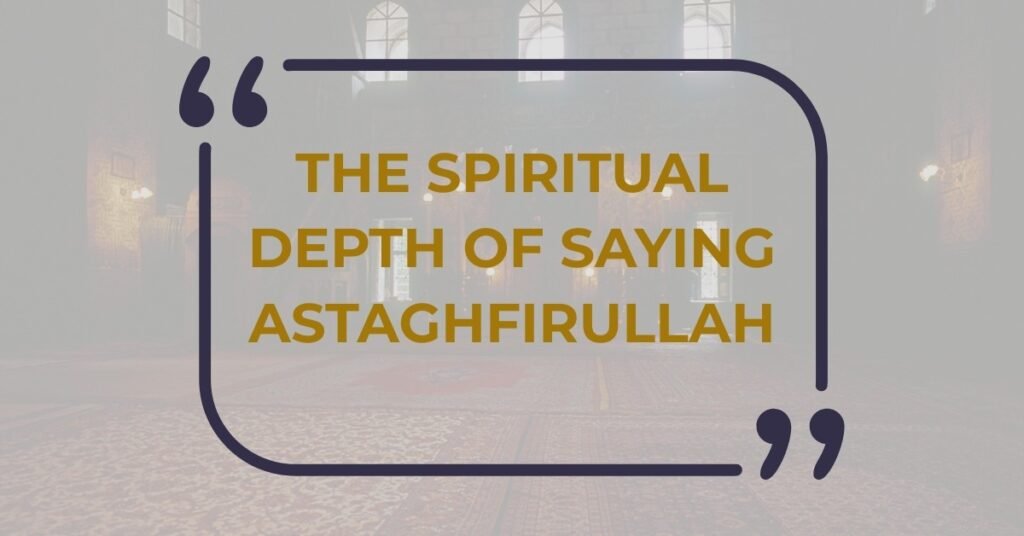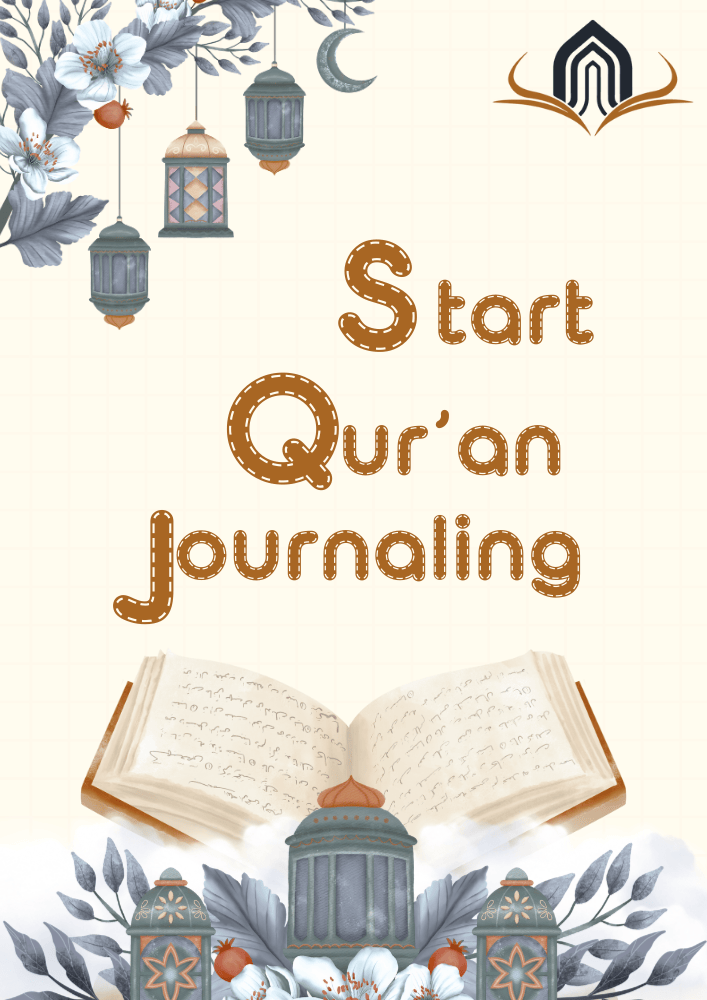There are some words in Islam that carry oceans of meaning in just a few letters — Astaghfirullah is one of them. You’ve probably heard it in conversations, prayers, or maybe even said it when something went wrong. But do we truly understand the Astaghfirullah meaning and the deep peace it brings to the heart?
This simple phrase is not only about seeking forgiveness — it’s about transforming the soul, healing guilt, and reconnecting with Allah (SWT). On IslamicLifeToday.com, let’s explore how Astaghfirullah can purify your soul and fill your life with light.
What Does Astaghfirullah Mean?
Astaghfirullah means “I seek forgiveness from Allah,” a powerful reminder of humility, repentance, and Allah’s endless mercy toward His servants.
The Literal Meaning of Astaghfirullah
The word Astaghfirullah (أستغفر الله) literally translates to “I seek forgiveness from Allah.” It’s a humble declaration that reminds a believer of their human imperfections and the endless mercy of Allah.
When you say Astaghfirullah, you are not just repeating a phrase — you’re opening a door between your heart and your Creator, asking for pardon with sincerity.
Root Word and Arabic Origin
The word comes from the Arabic root “Ghafara (غفر)”, which means to cover, to protect, or to forgive. From this root comes one of Allah’s beautiful names — Al-Ghaffar, The Most Forgiving.
So, saying Astaghfirullah isn’t only an act of speech — it’s invoking Allah’s attribute of forgiveness, calling upon His mercy and protection from sins.
When and Why Muslims Say “Astaghfirullah”
Muslims say Astaghfirullah in many situations — after realizing a mistake, when feeling regret, after committing a sin, or even when witnessing something wrong. It’s a phrase of self-reflection, humility, and purification.
The Prophet Muhammad (ﷺ) used to say Astaghfirullah more than 70 times a day, reminding us that constant repentance keeps the soul alive and clean.
The Spiritual Depth of Saying Astaghfirullah

Saying Astaghfirullah is more than seeking forgiveness—it’s a heartfelt act of humility that strengthens your bond with Allah and purifies your spirit.
More Than Just Words – A Reflection of the Heart
Saying Astaghfirullah without sincerity is like washing your hands without water — it looks like you’re cleaning, but nothing changes.
When your heart feels the weight of sin, and your tongue says Astaghfirullah with real emotion, it becomes a conversation between you and Allah. It’s a sign that your soul is alive, aware, and seeking light again.
Astaghfirullah in the Quran and Hadith
The Qur’an mentions the act of seeking forgiveness in many verses:
“And seek forgiveness of Allah. Indeed, Allah is Forgiving and Merciful.”
(Surah Al-Muzzammil 73:20)
The Prophet Muhammad (ﷺ) said:
“By Allah, I seek the forgiveness of Allah and repent to Him more than seventy times a day.”
(Sahih al-Bukhari 6307)
These teachings show how central Astaghfirullah is in a Muslim’s daily life.
How Astaghfirullah Purifies the Soul
Reciting Astaghfirullah cleanses the heart from sins, renews faith, and brings the soul closer to Allah through sincere repentance and inner peace.
Cleansing the Heart from Sins
Each sin leaves a small black mark on the heart. Constantly saying Astaghfirullah polishes those stains, allowing your spiritual heart to shine again.
Think of it as a spiritual detox — the more you seek forgiveness, the more your soul becomes light, peaceful, and free.
Building a Stronger Connection with Allah
When you seek forgiveness, you are acknowledging Allah’s greatness and your dependence on Him. It strengthens your bond with Him and brings divine peace into your life.
This act of humility brings you closer to Allah in ways that words alone can’t express.
Inner Peace Through Constant Repentance
Guilt can quietly eat away at the soul. Saying Astaghfirullah releases that burden. It’s like exhaling the heaviness inside you and inhaling hope.
Through sincere repentance, the soul feels renewed — calm, centered, and spiritually awakened.
The Benefits of Reciting Astaghfirullah Regularly
Regular recitation of Astaghfirullah brings peace to the heart, forgiveness for sins, and countless blessings from Allah in both this life and the hereafter.
Spiritual Benefits
- Increases faith and humility
- Wipes away sins and mistakes
- Opens the doors of mercy and guidance
Mental and Emotional Healing
Constant dhikr (remembrance of Allah) soothes anxiety, fear, and guilt. The sound of Astaghfirullah itself carries comfort — it’s like your soul whispering, “It’s okay, Allah still loves you.”
Blessings and Forgiveness from Allah
The Qur’an tells us that seeking forgiveness brings not only mercy but also blessings in wealth, health, and family:
“Ask forgiveness of your Lord. Indeed, He is ever a Perpetual Forgiver. He will send [rain from] the sky upon you in continuing showers.”
(Surah Nuh 71:10–11)
So, Astaghfirullah isn’t just a word — it’s a gateway to both spiritual and worldly success.
The Right Way to Say Astaghfirullah
Say Astaghfirullah with a sincere heart, deep regret, and a true intention to change, letting your repentance connect you closer to Allah.
Meaning It from the Heart
Your lips can say it a thousand times, but only a sincere heart brings change. When you feel your need for Allah’s mercy deeply, even one heartfelt Astaghfirullah can transform your state.
Combining Repentance with Action
True repentance means avoiding the sin again. Astaghfirullah is the first step — the second is change. As the Prophet (ﷺ) taught, Allah loves those who constantly repent and strive to do better.
Common Situations Where Astaghfirullah Is Used
Muslims often say Astaghfirullah when:
- They make a mistake or say something wrong
- They witness sin or injustice
- They feel guilt or regret
- They seek calmness and patience
- They finish a prayer or remembrance session
It’s both a word of reflection and a spiritual habit.
Daily Routine: Making Astaghfirullah a Habit
You can integrate Astaghfirullah into your daily life — after prayers, before sleep, while driving, or even while working. The goal is consistency.
Make it a natural part of your day, and soon, your tongue will move with remembrance even without thinking — a sign of a heart close to Allah.
Misconceptions About Saying Astaghfirullah
Some people think saying Astaghfirullah is only for those who sin badly. That’s not true. Even the most pious among us seek forgiveness constantly. It’s not a mark of weakness — it’s a sign of faith and self-awareness.
Frequently Asked Questions (FAQs)
It means “I seek forgiveness from Allah” and expresses humility, repentance, and faith in Allah’s mercy.
The Prophet (ﷺ) said it over 70 times a day, but you can say it as often as you wish — the more, the better.
Yes, when said sincerely and followed by true repentance, Allah forgives sins, big or small.
Anyone can say it to seek Allah’s mercy and forgiveness, but in Islam, it holds deep spiritual significance for believers.
It brings calmness, reduces anxiety, erases guilt, and helps reconnect you with your spiritual self and with Allah.
Conclusion
The Astaghfirullah meaning goes far beyond words. It’s a heartfelt plea for forgiveness, a key to inner peace, and a bridge to divine mercy. Each time you say Astaghfirullah, imagine washing away layers of pain, guilt, and heaviness — until your soul feels clean, light, and renewed.
So, let’s make it our daily habit — not just to say Astaghfirullah, but to live by it. Because the more you remember Allah, the more He blesses your heart with peace.







